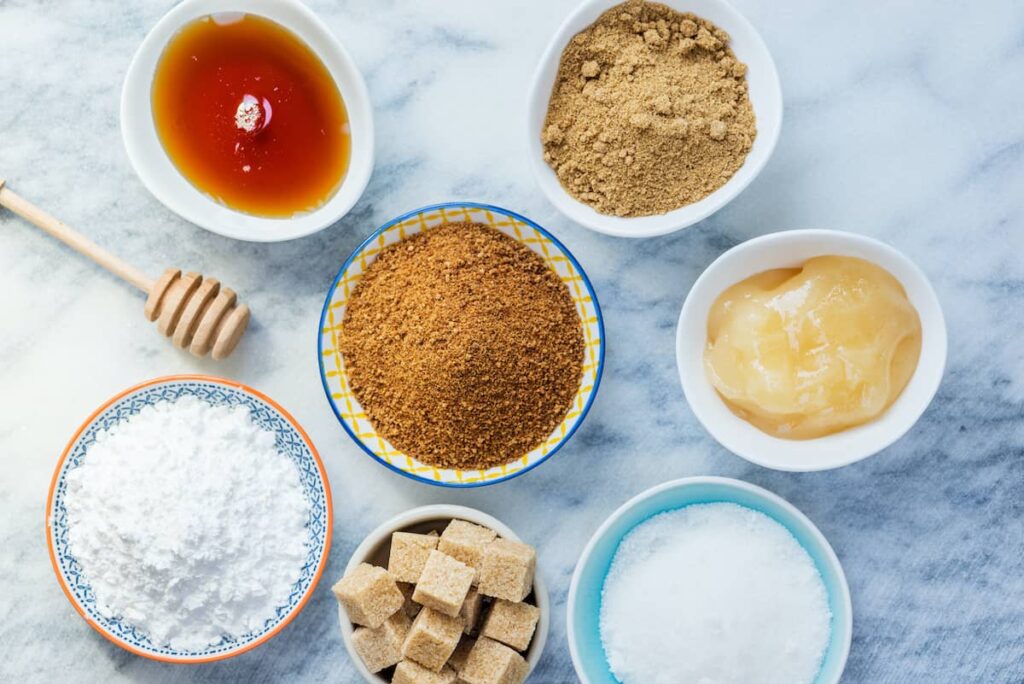In the quest to eat healthier, many people are ditching refined sugar and reaching for natural sweeteners instead. Promoted as a better-for-you alternative to white sugar and high-fructose corn syrup, these sweeteners promise to satisfy your sweet tooth without the crash — or the guilt.
But are natural sweeteners truly healthier, or are they just a more “organic” way to overindulge? Let’s take a closer look.
What Are Natural Sweeteners?
Natural sweeteners are sugars or sugar substitutes derived from plants, fruits, or natural processes, with little to no chemical processing. Some of the most popular include:
- Honey
- Maple syrup
- Coconut sugar
- Stevia
- Monk fruit
- Molasses
- Date syrup or paste
- Agave nectar
These sweeteners differ in taste, texture, and how they affect blood sugar and metabolism.
7 Reasons Natural Sweeteners May Be a Healthier Choice
1. Less Processed
Natural sweeteners generally undergo minimal processing, meaning they retain more nutrients and antioxidants than refined sugar.
2. Lower Glycemic Index (In Some Cases)
Some natural sweeteners — like stevia, monk fruit, and agave — have a lower glycemic index, meaning they don’t spike blood sugar as rapidly as white sugar.
3. Nutrient Content
While they’re still sweeteners, options like honey, molasses, and maple syrup contain trace minerals such as calcium, iron, magnesium, and potassium — which refined sugar lacks.
4. Fewer Empty Calories
Though still caloric, many natural sweeteners come with additional health benefits, such as anti-inflammatory properties (especially in raw honey and molasses).
5. Suitable for Special Diets
Natural zero-calorie sweeteners like stevia and monk fruit extract can be used by people with diabetes, those on keto, or anyone aiming to reduce sugar intake without sacrificing sweetness.
6. Better Taste and Variety
Each natural sweetener offers a unique flavor profile — from the caramel notes of coconut sugar to the earthy sweetness of dates. This adds depth to recipes and encourages mindful eating.
7. Fewer Additives
Many commercial artificial sweeteners (like aspartame or saccharin) contain fillers or synthetic additives. Natural sweeteners are generally cleaner, especially when organic or minimally processed.
Use with Caution: Not All That’s Natural Is Guilt-Free
While natural sweeteners can be healthier than refined sugar, they are still sugars — and should be consumed in moderation. Overusing them can still contribute to:
- Weight gain
- Tooth decay
- Blood sugar imbalances (depending on the sweetener)
Also, not all natural sweeteners are created equal:
- Agave nectar, for example, is high in fructose, which may strain the liver in excess.
- Coconut sugar has a lower glycemic index than white sugar, but it’s still a sugar and calorie-dense.
- Raw honey is beneficial in small amounts but is not recommended for infants due to the risk of botulism.
Best Practices for Using Natural Sweeteners
- Read labels: Even “natural” products can be highly processed or blended with less desirable ingredients.
- Start small: A little goes a long way, especially with potent sweeteners like stevia or monk fruit.
- Mix it up: Use different sweeteners in various recipes to balance taste, texture, and nutrients.
- Opt for unrefined: Choose raw, organic, or minimally processed varieties whenever possible.

Natural sweeteners can be a smarter, more wholesome choice compared to refined sugar — especially when used mindfully. They offer more than just sweetness, often delivering a subtle mix of nutrients, antioxidants, and unique flavors.
But remember: “natural” doesn’t mean unlimited. A healthier relationship with sugar — in any form — starts with moderation, mindfulness, and a well-balanced diet.

